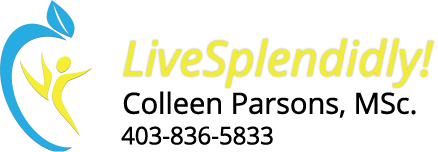Does your data drive you to perform or drive you nuts?
You’ve probably heard it. I know I have. “Wait, I have to turn on my watch/app. You know that if it’s not on (name your wearable app), it didn’t happen”. Are you feeling married to your data? Do you collect it, log it and then never look at it again? Or do you monitor it all so closely that you forget to ask yourself how you feel? Do you think that you can’t get a proper workout without tracking your data?
What the heck did we do before heart rate monitors, activity trackers, smart watches and power meters show up on the scene? I’ll tell you what. We used something quite rudimentary – perceived exertion. We gauged how hard we ran or rode or swam or hiked, based on how we felt. Sure, you had to guesstimate your distances and pace but on race-day – did it make any difference? Are we faster, stronger, better than before? For we non-elites, I’m not so sure.
I probably ran my first half dozen marathons and first three iron-distance triathlons without the benefit of even a heart rate monitor and not only survived, but likely clocked my best efforts in those years. Does that mean that the data wasn’t important – no, not at all. I probably ran too hard on easy days and not hard enough on hard days – but I was very much in tune with how I felt relative to the day. I could tell when I was out of my pace, how much to hold back and when to put the hammer down. Don’t get me wrong, it’s nice to have the technology now, but sometimes I like to put it away and simply enjoy the experience of the activity.
So, what are some benefits to the gadgets and gizmos?
There are many benefits to having technology to help us with our training. Having resting, maximal and target heart rates for specific workouts has taken the guess work out of intervals, recovery runs and the like. The GPS features have taken the guesswork (the mapping and the math) out of distance and pace. The accelerometer features have offered users feedback on number of steps taken and targets to shoot for when simply wanting to become more active. These wearables are very handy, allowing us to measure and track everything from our training to our sleep quality. We can be very conscious of heart rate recovery and resting heart rate – equating that to gains in fitness or under-resting.
What are some drawbacks to these items?
There are many drawbacks (interestingly – battery life is rated as the number one drawback in my search), but the one I will focus on for the purpose of this blog is the business of tuning-in and deciding when it’s time to work hard, work light or take a day off by simply being aware of how one is feeling.
Have we lost track of whether we’ve had a good run, ride, swim or ski based on our level of energy, fatigue or pleasure rather than what we have measured? What about those days where you just can’t find your mojo or seem to get your heart rate up high enough for the workout? What if it’s because your legs are just too tired to do the work to stimulate the heart rate you desire? What then? Plough through?
I also wonder that with so much data – we are so busy quantifying our training that we miss the joy of the experience. What about the fresh air, the crisp cool on our skin, the sheer pleasure that we can get from the activity itself? What about how you’re feeling in the saddle or as your foot strikes or hand enters the water? Are you muscling-through your wattage, cadence or pace so that the numbers are worthy of logging? What about injury? What about recovery?
I admit that since investing in a wearable that tracks my workouts, distances and recreational activities. I do use it to monitor my easy days and my hard days so that I make progress. I even do tally things up at the end of each year and use that information to set new targets for the next year. I find it somewhat motivating as I get older and my race goals dwindle. I’ve no interest in the competition scene anymore, but I do want to be active and mobile well into my 90’s – so having some data helps to see where I’ve been, and what could be next. Besides, there’s a little ‘geek’ in me that likes to see the numbers.
If you’ve lost touch with how you feel and are paying more attention to the numbers – maybe some unplugging can help you to to re-engage in the joys of physical activity. There really is so much to enjoy.
LiveSplendidly!
